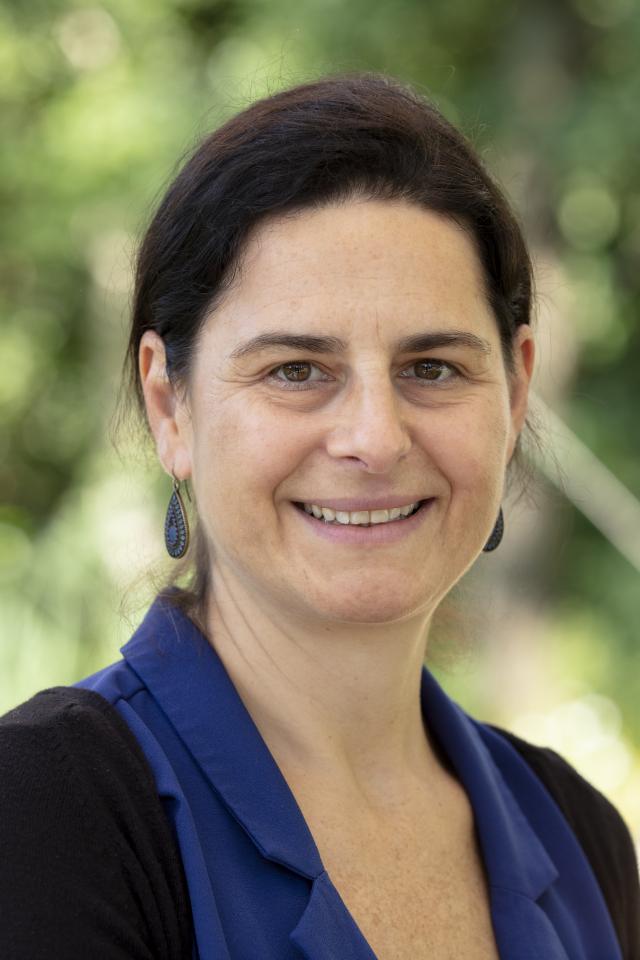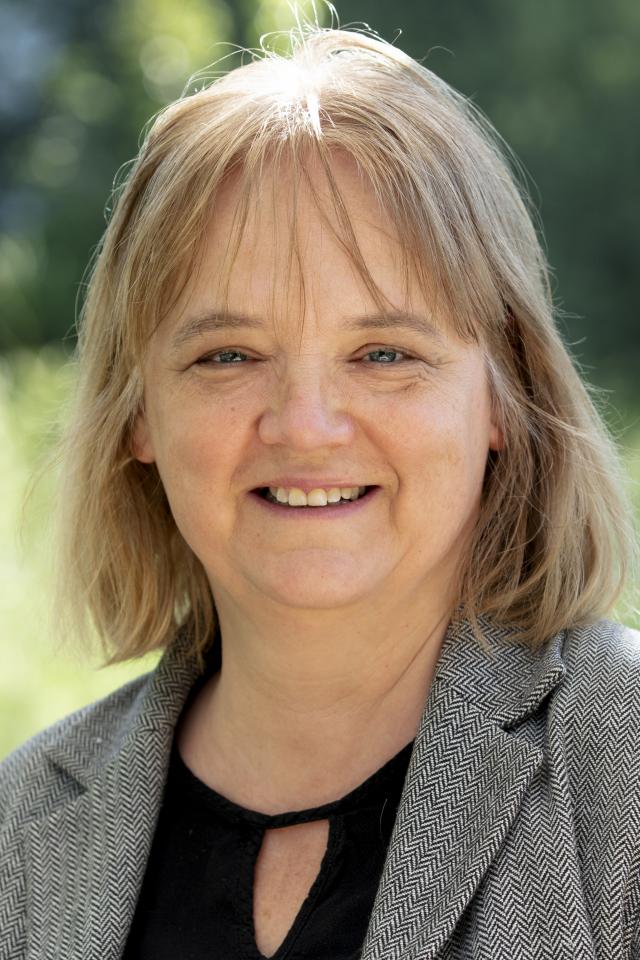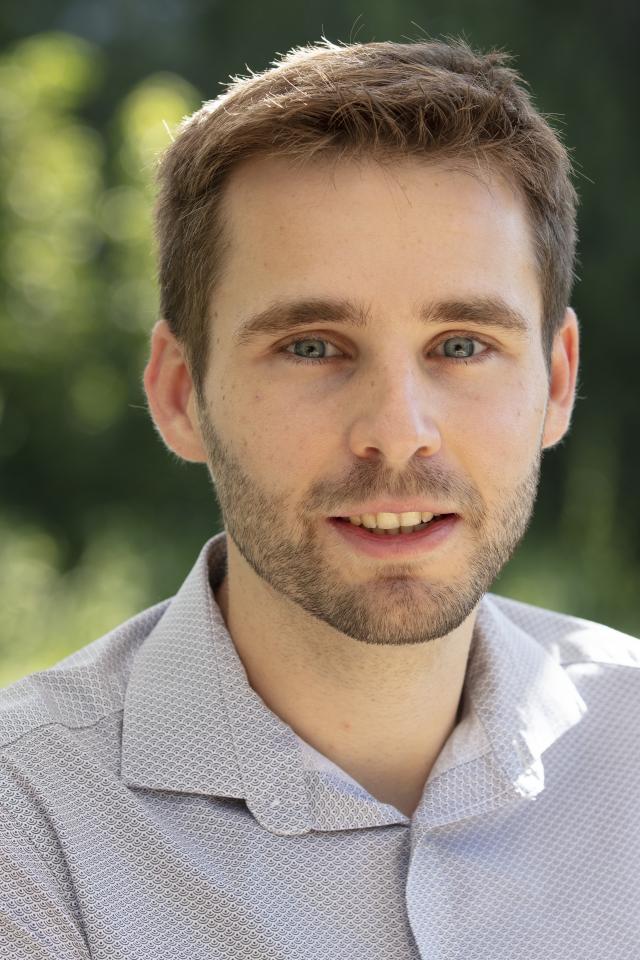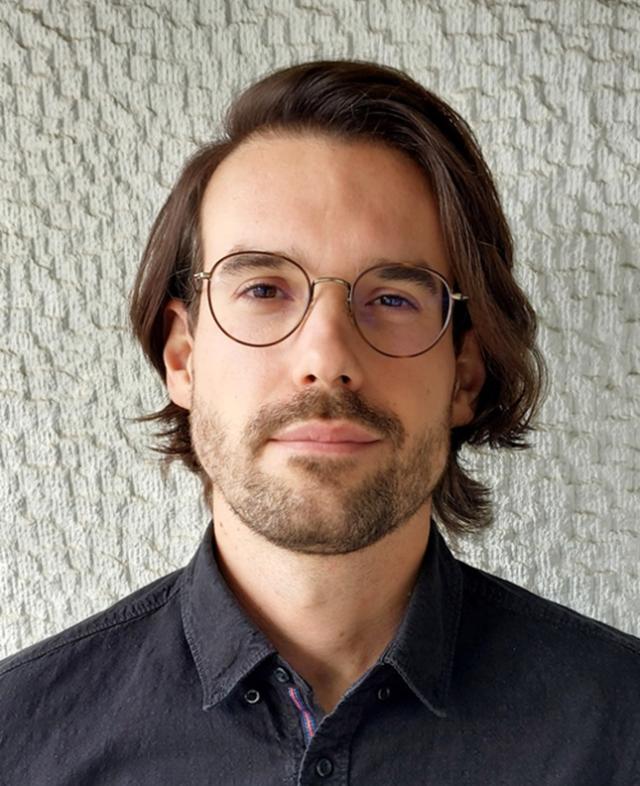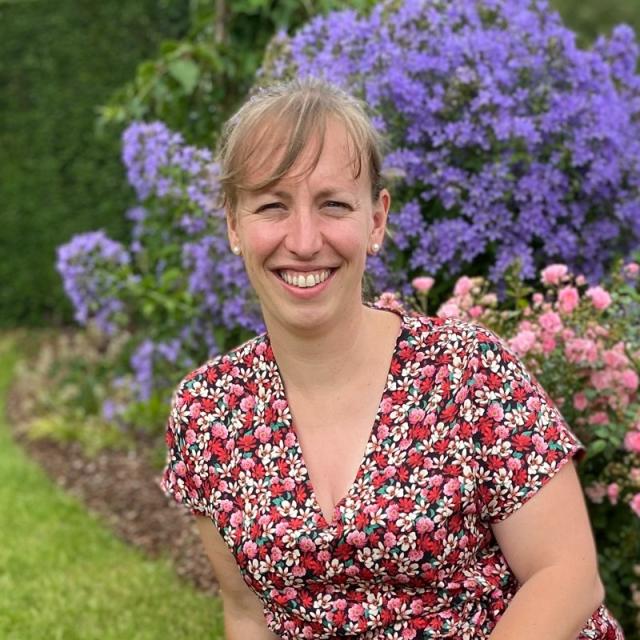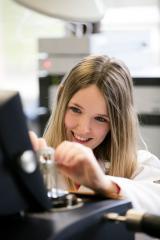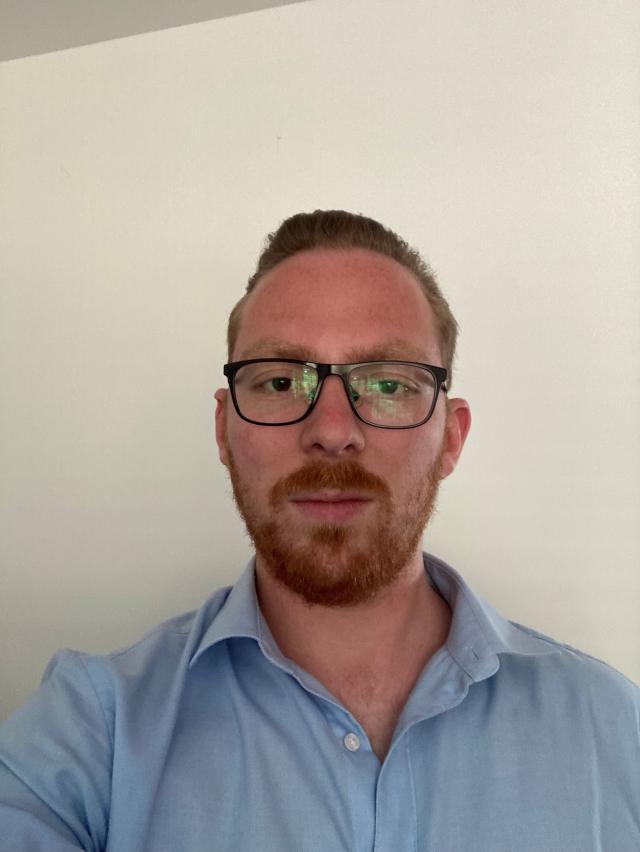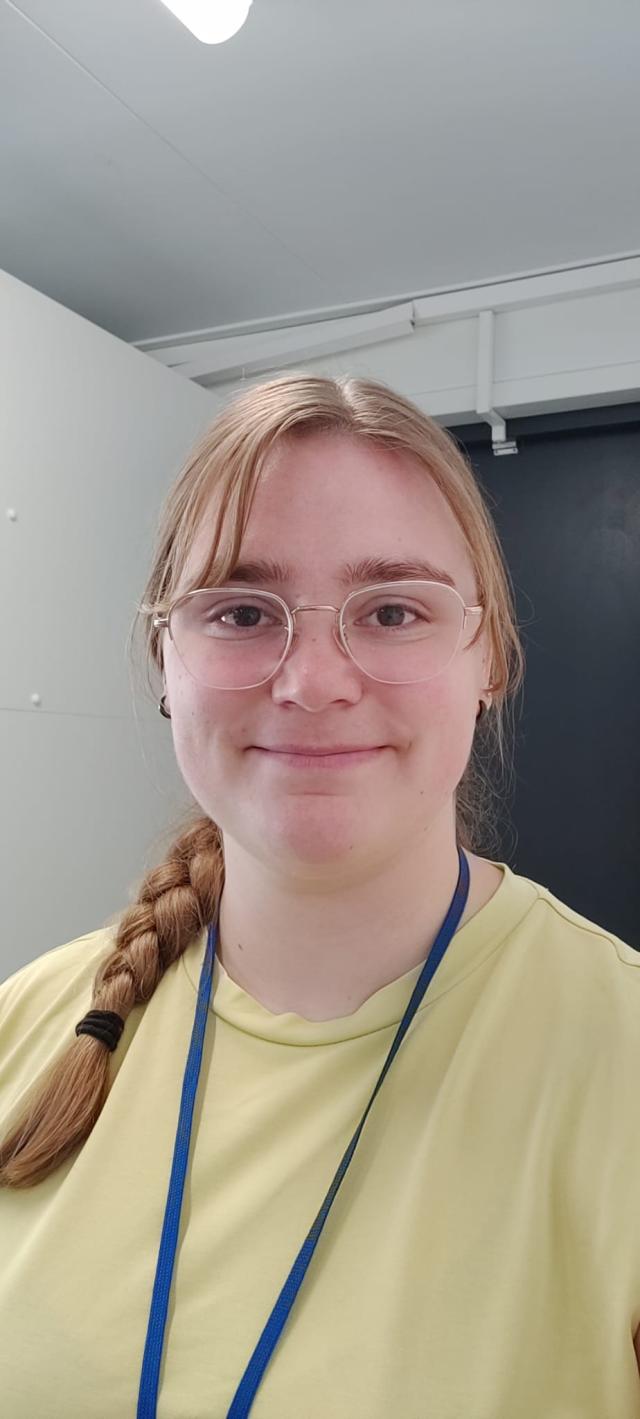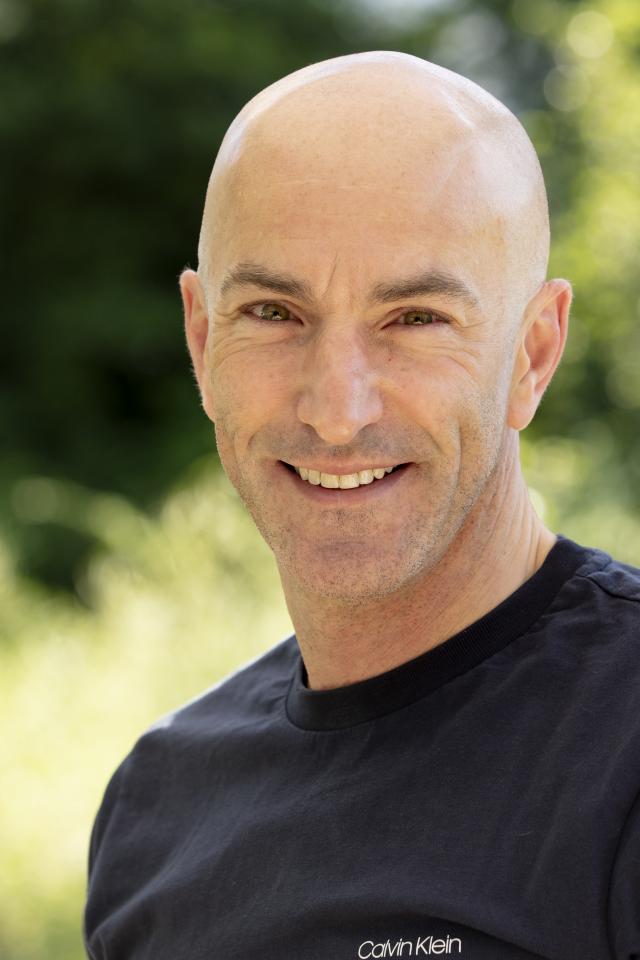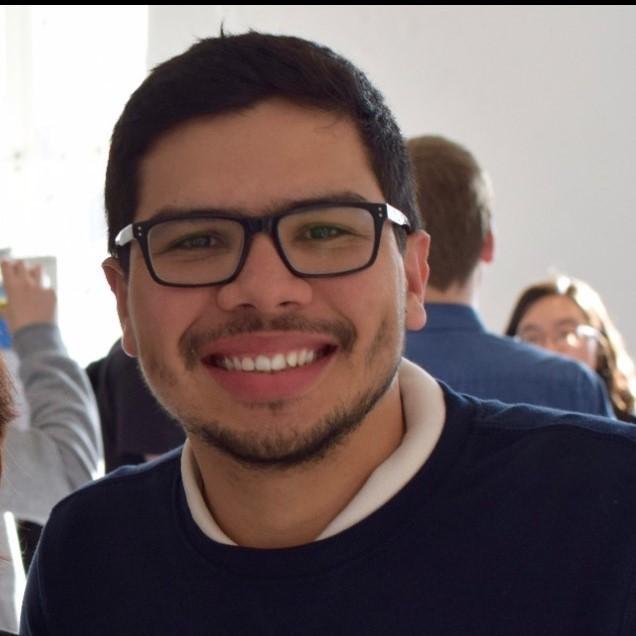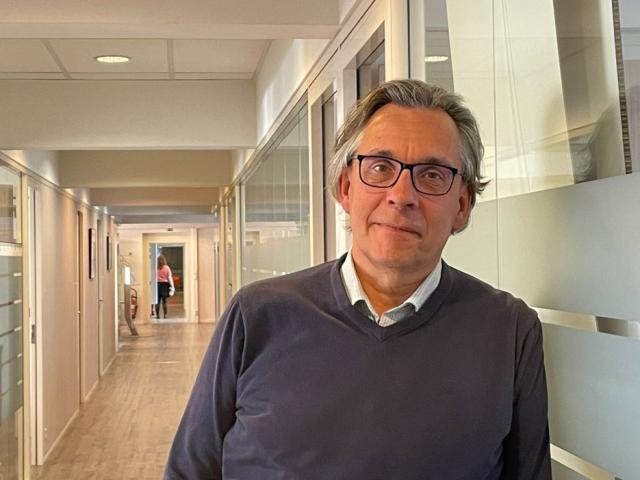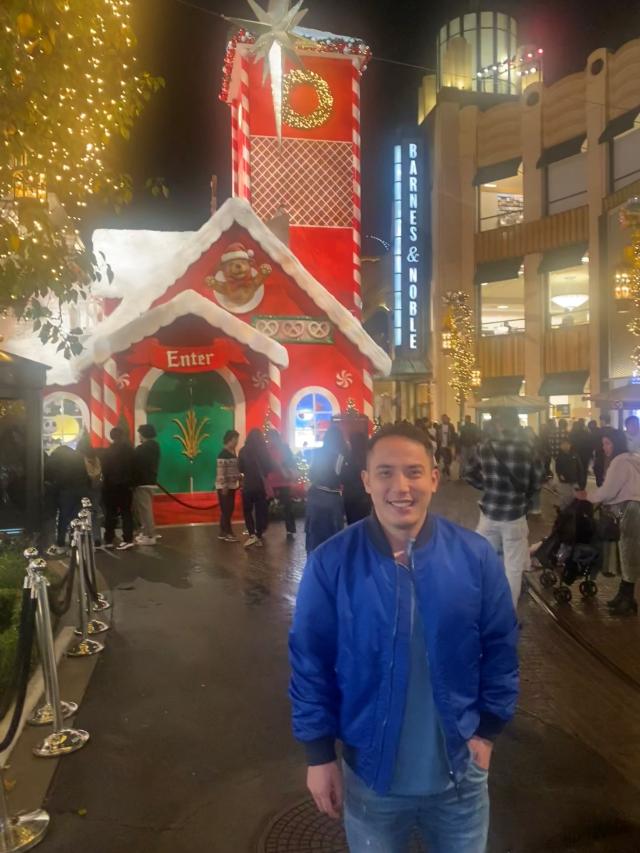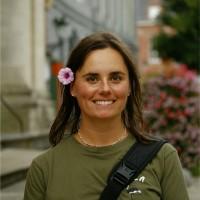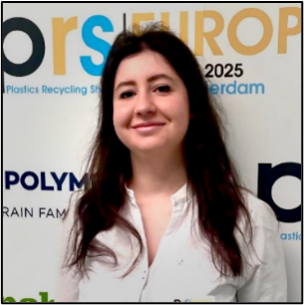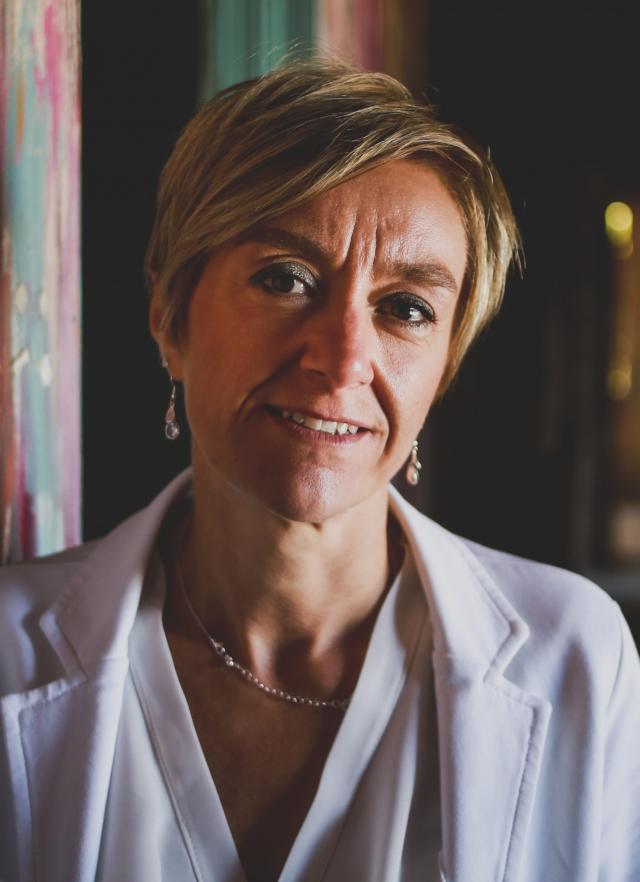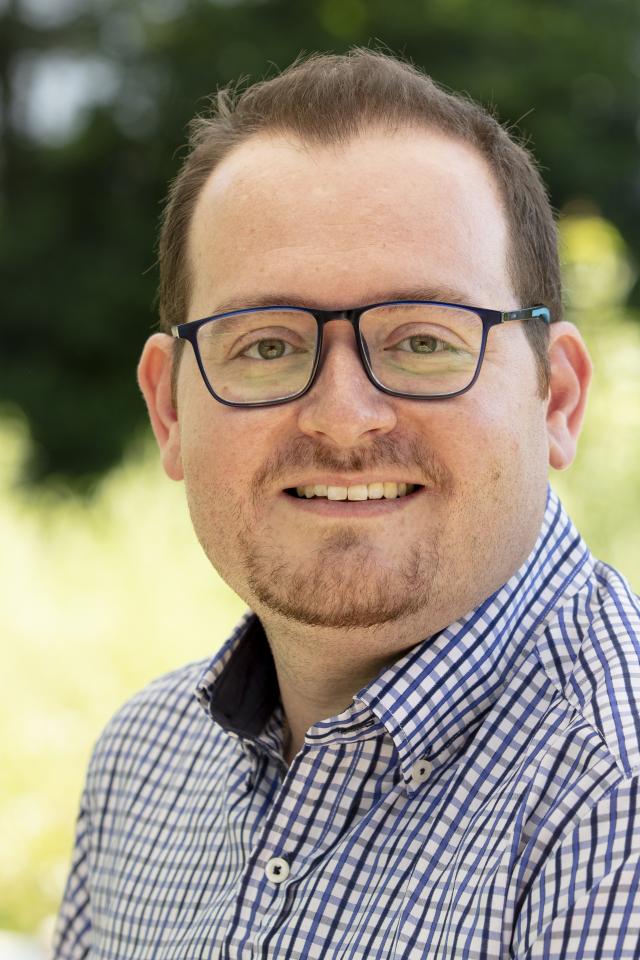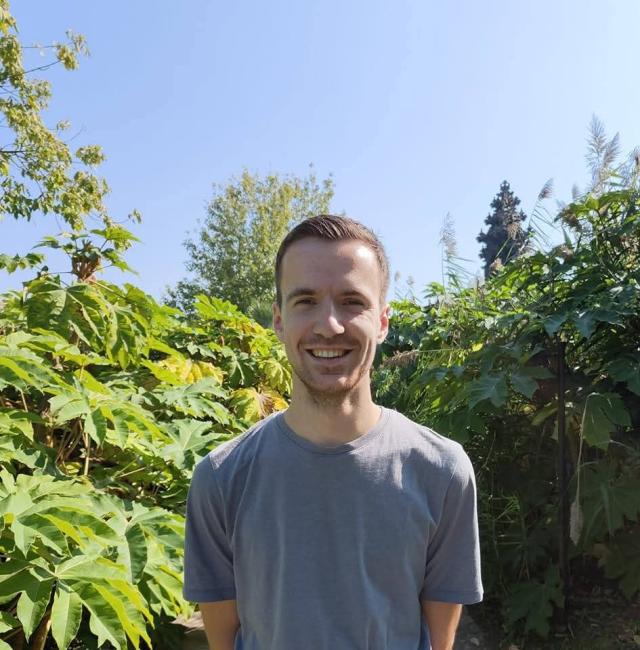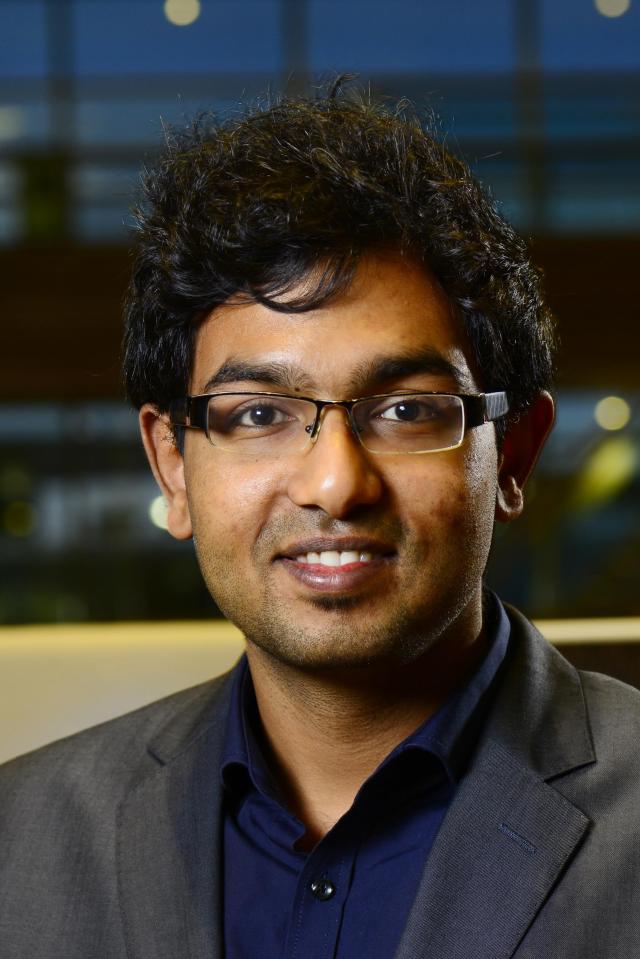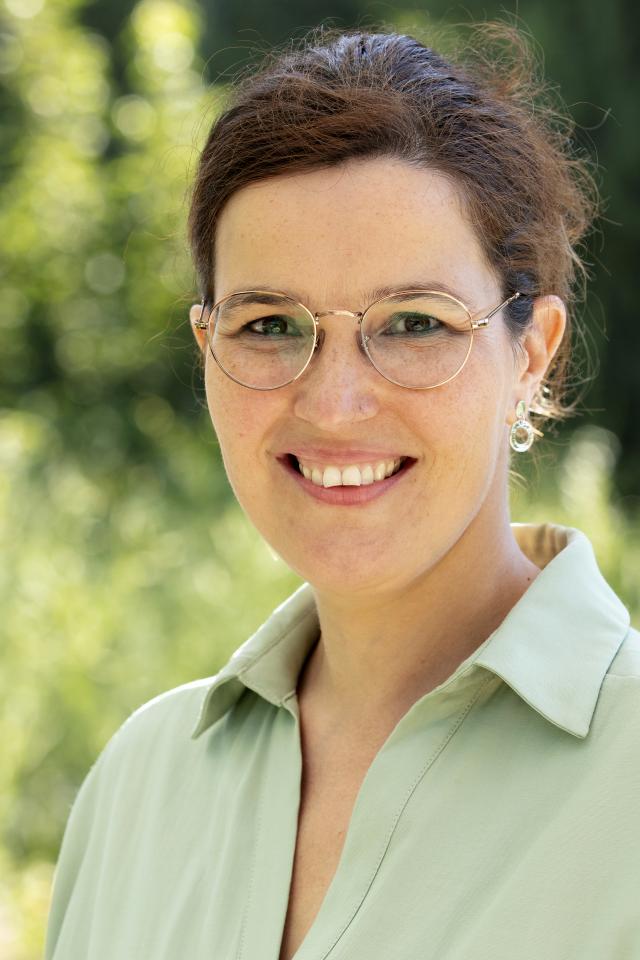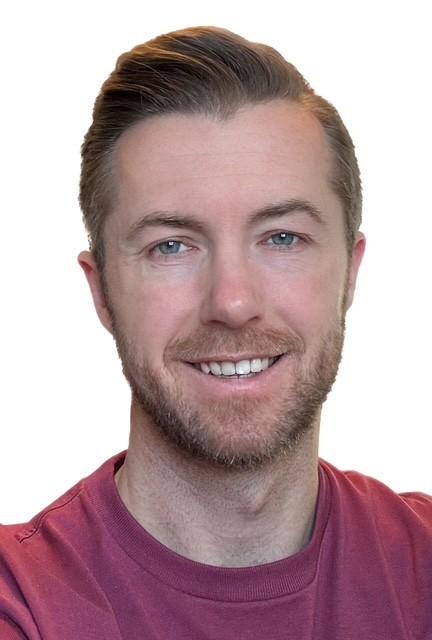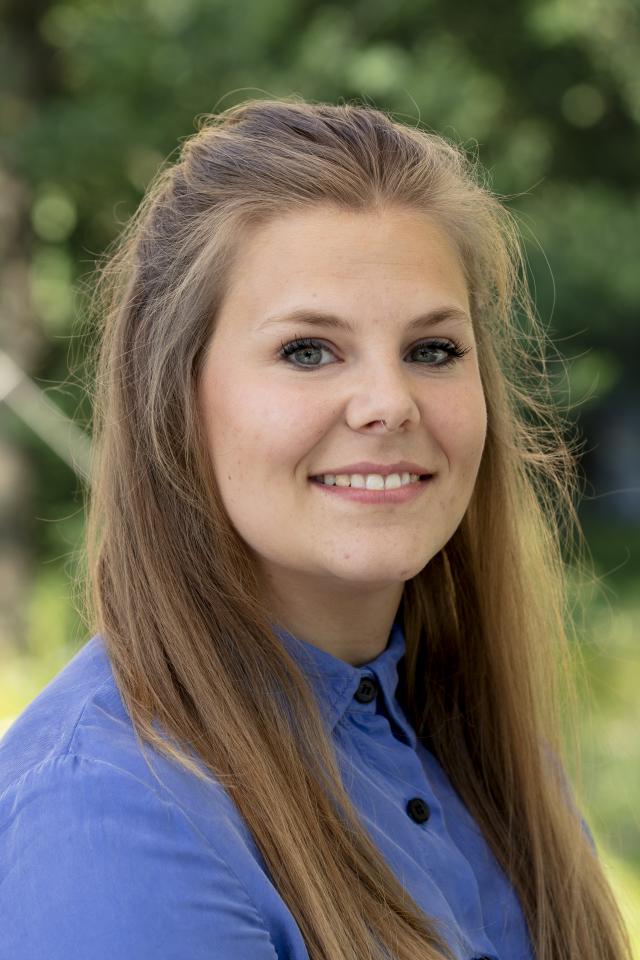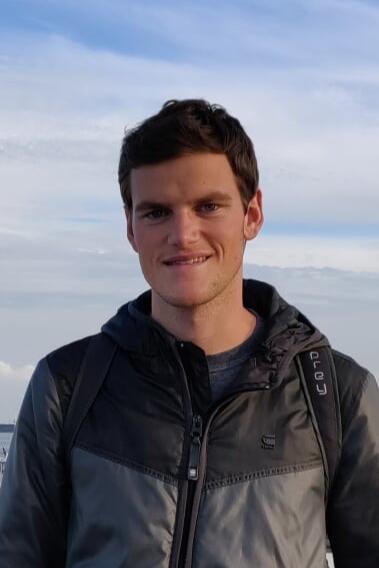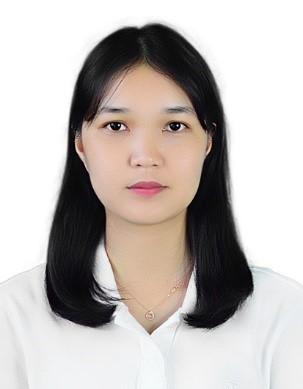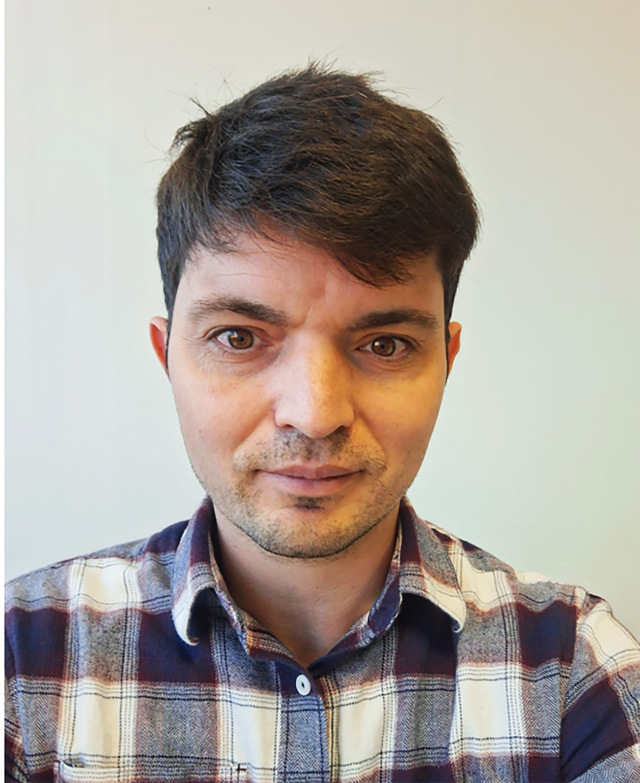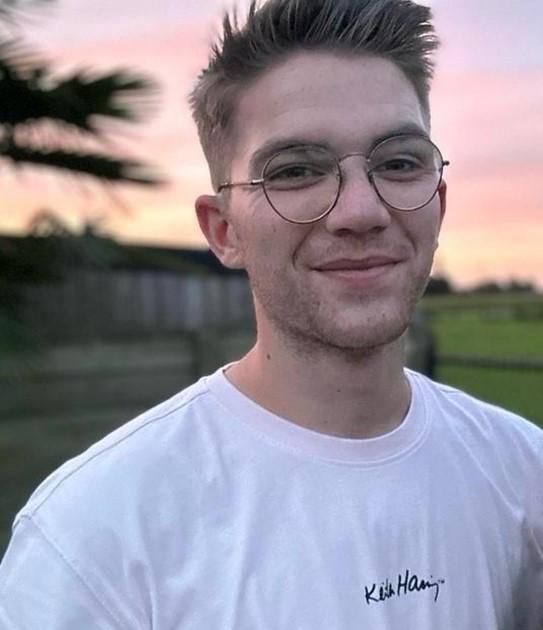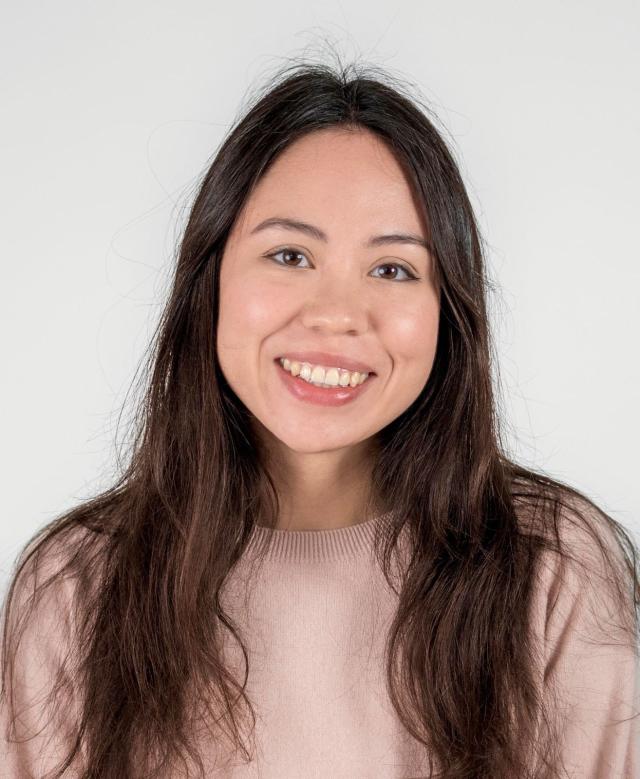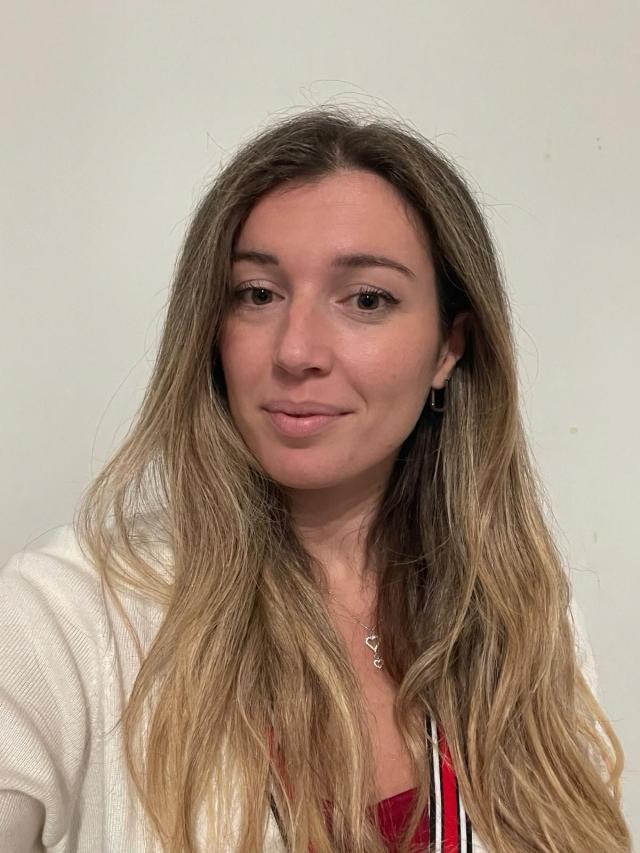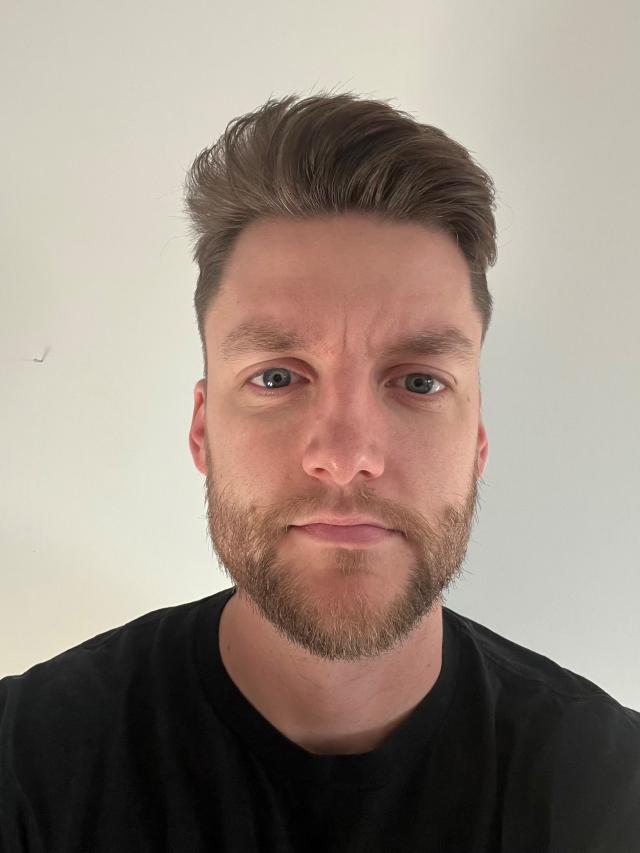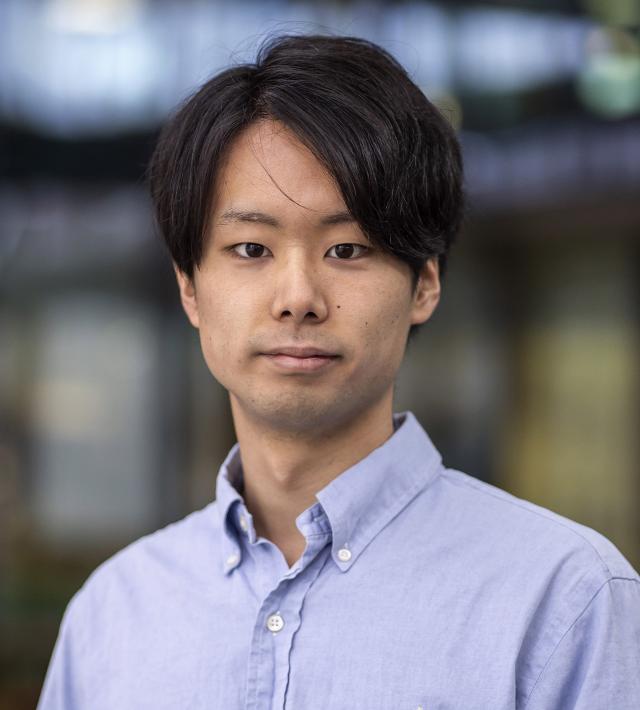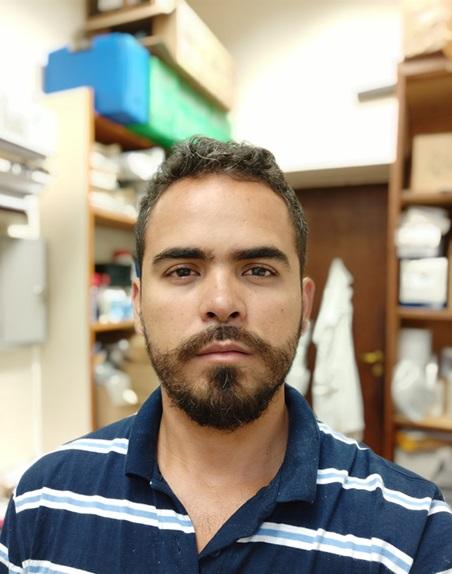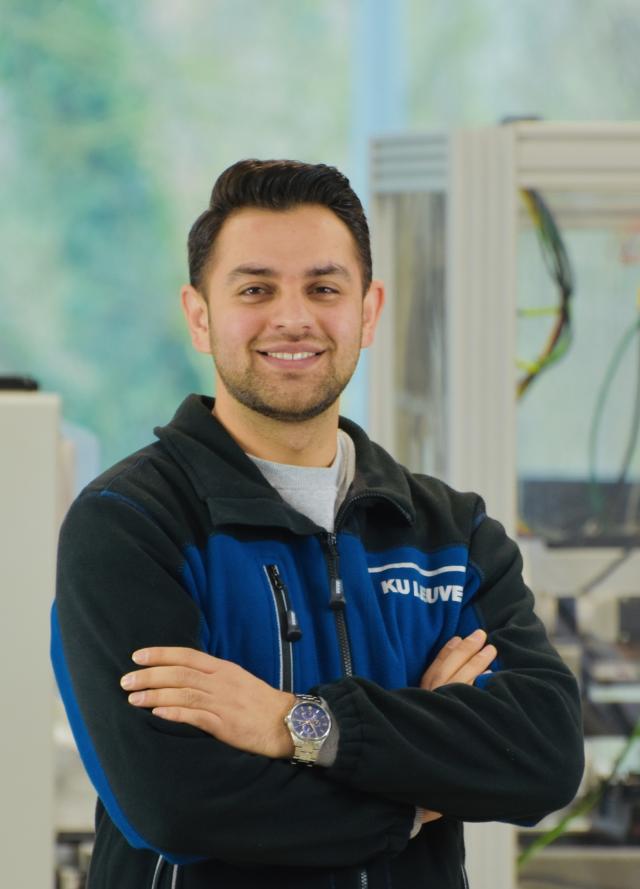Karolien Vanbroekhoven (Research Manager)
Dr. ir. Karolien Vanbroekhoven, is Research Manager sustainable chemistry at VITO. She joined VITO in 2002 after her PhD in BioEngineering from KULeuven and has a lot of experience in managing various national/international projects. Up to 2018 she was a program manager leading the bioprocess and electrochemistry teams at the business unit Separation and Conversion Technology. Her focus areas of R&D are biobased economy, biomass valorisation, and bioprocess development. Recently, she coordinates the technology development within the program of sustainable chemistry, with main focus areas on new value chains from renewable and recycled feedstock and sustainable industrial process development. Mainly active in strategy development and implementation, a.o. technology development, building strategic collaborations, technology watch. She also leads the research theme on bioaromatics and is on the board of the shared research centre ‘Biorizon’ initiated by VITO, TNO and the Green Chemistry Campus. She has >6200 citations (current H-index- 38, Google scholar).
Kathy Elst
Dr. Kathy Elst- holds a PhD in Physics (1993) and worked as a project manager in a chemical company on the development of tailored light-sensitive crystals by new precipitation processes. She joined VITO at 2001 and is currently a project manager in SCT. Her main research field involves the development of processes to separate and purify added value components from different types of biomass streams, including biomass waste/side streams and algae. Her main focus is on the application of green solvents and innovative pressurized processes. Kathy Elst was involved in several scientific and industrial research projects and was group leader and/or WP-leader in several EU-projects (Prospare, Bioconcept, Sayogh, Noshan, iAlgaePro) and regional projects. Kathy Elst has a large experience in performing and protecting innovative technology development. During her career she authored many US, EU and JP patents and patent applications (20 patent families). She is author/co-author of more than 40 SCI-publications.
SANDRA CORDERÍ GÁNDARA
Dr. Sandra Corderí Gándara obtained a master’s degree in Analytical Chemistry and a Ph.D. in Chemical Engineering at the University of Vigo (Spain), where she specialized in innovative separation processes using ionic liquids. She continued her career in the Sustainable Process Technology group at the University of Twente (The Netherlands) developing efficient processes for the separation of chiral molecules and aliphatic/oxygenates streams. In May 2019, she joined the Flemish Institute for Technological Research (VITO) and has been involved in several R&D projects in the fields of lignin downstream processing (fractionation, solubilization, purification, depolymerization) and plastics recycling.
RICHARD VENDAMME
Dr. ir. Richard Vendamme, Senior Research Scientist, PhD, obtained an engineering degree and a master's degree in chemistry in Lille (France) in 2001. He subsequently moved to the Max-Planck Institute for Polymer Research in Mainz (Germany), where he prepared his PhD working on stimuli-responsive liquid crystalline gels. In 2004 he was awarded a JSPS postdoctoral fellowship and started his career at the Institute of Physical and Chemical Research (RIKEN) in Japan. In 2007, he joined the European headquarter of Nitto Denko, one of Japan’s leading diversified materials manufacturers, where he was successively involved in R&D, innovation, and techno-marketing. He is working at VITO since April 2017 in the field of bio-aromatics and bio-polymer development, where he recently built a team of +/- 10 researchers (incl postdocs, PhD’s). Richard is author of 18 scientific publications, 10 patents, and also holds an executive MBA from Vlerick business school.
MAARTEN RUBENS
Dr. ir. Maarten Rubens has a master's degree in chemical engineering (2016) from the Technical University of Eindhoven and a Ph.D. in polymer chemistry (2020) from Hasselt University. During his Ph.D., he spent 3 years at Monash University, Australia in the group of prof. T. Junkers working on implement flow technology for precision polymer engineering of polyacrylates. Currently, he is pursuing a post-doc in the Flemish Institute for Technological Research in the field of bio-aromatics and sustainable polymer development. He is (co-) author of 13 peer-reviewed scientific publications in the field of acrylic polymers and flow chemistry.
PAUL JUSNER
Dr. Paul Jusner obtained a master’s degree in Wood Technology and Management in 2018 at the University of Natural Resources and Life Sciences, Vienna (BOKU) and received his PhD upon completion of the doctoral program Advanced Biorefineries: Chemistry and Materials in 2022. From 2017 to 2022, he was a member of the Institute of Chemistry of Renewable Resources at BOKU university. During that time, he was working on the chemical modification of cellulose fibers, the characterization of lignocellulosic biomass and the safe utilization of biomass processing agents. In 2023, Paul joined VITO as a postdoctoral researcher where he will be working on the depolymerization and solubilization of lignin.
MIET VAN DAEL
Dr. Miet Van Dael is a research scientist at VITO. She obtained her PhD in Applied Economics at Hasselt University, Belgium in 2014. She joined VITO in 2013. Till 2017 she worked at VITO (50%) and combined this with a post-doc position (50%) at the Hasselt University. Since 2017 she works fulltime at VITO as an economic researcher in the unit of Separation and Conversion Technology. Furthermore, she is a research affiliate in the environmental economics group at the Hasselt and Antwerp University. Her main field of expertise is techno-economic assessments. As a researcher her ambitions are to further integrate techno-economic assessments with an environmental and social impact, make the methodology spatially explicit and link it with the acceptance of the assessed technologies. In doing so, her main fields of interest are biorefineries and CCU technologies.
MARLIES THYS
Dr. ir. Marlies Thys holds a master's degree in Chemical Engineering with a specialization in Molecular Systems and Materials Chemistry from Eindhoven University of Technology. She pursued her PhD on bioderived adaptive networks through a collaboration between Vrije Universiteit Brussel and VITO, under the supervision of Prof. Niko Van den Brande and Richard Vendamme. After successfully defending her PhD in October 2023, she remained at VITO as a researcher, focusing on advancing the development of biobased and/or reversible materials.
Michiel Jacobs
Michiel Jacobs joined VITO as a chemist with a passion for linking chemistry and data science. He holds a Master of Science in Chemistry from Vrije Universiteit Brussel, where he specialized in molecular design and computational chemistry. Before coming to VITO, he gained experience in both academic and industrial R&D, working on polymer synthesis, coatings, and predictive modelling. He also shared his enthusiasm for science as a teacher, guiding students in chemistry, physics, and lab technology. At VITO, Michiel builds on his combined expertise in chemistry and artificial intelligence to contribute to innovative and sustainable developments in materials research.
Frédérique Clifton
Frédérique Clifton (MSc) obtained her master’s degree in Molecular Chemistry at the Radboud University in Nijmegen (NL) in August 2023. At the University she specialised in Synthetic Organic Chemistry in the group of Prof. Dr. Floris Rutjes. After completing her graduation internship at the Green Chemistry Campus with VITO, she officially joined the SPOT team in Mol as a lab researcher to continue her work on the synthesis of renewable aromatic building blocks starting from amino acids for the PROMIS project. In December 2024 she started with a PhD focusing on the design of biobased diamine structures for hybrid Non-Isocyanate Polyurethane foams, which is a collaboration between SPOT and Radboud University.
ROEL VLEESCHOUWERS
Ir. Roel Vleeschouwers - Business Development Manager at VITO in the field of Sustainable Chemistry. Master in Bioscience Engineering at the University of Leuven, Belgium Graduated at KULeuven in applied biological and chemical sciences as engineer in 1993. He is responsible for the business development and valorisation of the developed innovative technologies and applications in the field of sustainable chemistry, with a specific focus on using biomass as alternative feedstocks. He is expert in the field of membrane technology with over more than 20 years of experience and co-author of several publications in this field. Within the Biorizon shared research center he is responsible for the business development and valorisation of the Lignin Horizon towards implementation of industrial scale production of bioaromatics from lignin as well as the implementation of industrial application using these bioaromatics fractions. He has recently participated as an invited speaker at top conferences in biomass valorisation (EFIB, WorldBioMarket, OSN2019, PlantBasedSummit2019).
CARLOS MARQUEZ
Dr. ir. Carlos Marquez obtained his Bachelor and his Master’s degree from La Universidad del Zulia, Venezuela in 2015 (Summa Cum Laude). Later that year, he joined Prof. Dirk De Vos’ group at KU Leuven as a PhD student under the Marie Skłodowska-Curie Action ITN DEFNET, focusing on the engineered design of double metal cyanides as heterogeneous catalysts for organic reactions. After finishing his PhD, he started working as a postdoctoral fellow in the same group, with an active involvement on different projects about recycling and revalorization of plastic waste. In 2024, he joined the Sustainable Polymer Technologies team at VITO to work on the chemical recycling of oxygen containing plastics.
JOHAN VAN HUNSEL
Dr. Johan Van hunsel holds a PhD degree in Physical Chemistry from the University of Anwerp. He joined the Agfa-Gevaert Group in Mortsel (Belgium) (more specifically its Graphic Systems Division) in 1989 and has held several (leading) positions during his 33 years of career with this company. Johan started as a R&D project and program manager, working on the development and testing of new digital lithographic printing plates and the according pre-press systems. This work led to the filing of more than 30 patent applications and research disclosures. He went on to hold several technical product management functions within Agfa Graphics N.V. After a number of years in more managerial positions, he returned to R&D and eventually became part (and eventually head) of Agfa Graphics’ Technology & Innovation Office, where he assumed patent liaison and technology intelligence manager roles for all of Agfa Graphics’ R&D activities in both offset and digital (inkjet) printing. In these roles he gained a lot of experience with patent filing proceedings (and the necessary preparative steps), active patent portfolio management, infringement and litigation proceedings and finally also selling of patents. Johan left Agfa N.V. in April 2022 and has worked ever since as a technical writer and consultant for the graphic arts industry. In 2023 he worked for 7 months as a stakeholder relations officer - research & innovation for the Association of Flemish Universities of Applied Sciences.
YUNPING HUANG
Dr. Yunping Huang received his PhD at the University of Washington. During his PhD, he studied the low-cost and eco-friendly synthesis of organic semiconductors and developed a streamlined method to synthesize highly fluorescent dyes from caffeine and its derivatives. This novel method received funding from the NSF PFI awards to further explore its commercial potential, where he led the early technology transfer activities of the technology. In 2025, Yunping joined the Flemish Institute for Technological Research (VITO) as a post-doc to explore using lignin based biomaterials in sustainable 3D printing. He (co-)authored 18 peer-reviewed scientific publications in material chemistry.
TESSA FAULKS
Dr. Tessa Faulks is a materials and formulation chemist who joined VITO in 2025 as a postdoctoral researcher after completing her PhD in green chemistry and sustainable agricultural materials at Monash University under the supervision of Professor Antonio Patti. Working with her industry partner Sonic Essentials, and under the additional guidance of Professor Terrence Turney, her PhD research focused on developing sustainable fertiliser coatings and circular material solutions that improve nutrient efficiency and reduce environmental impact. Before her PhD, Tessa worked as an R&D and QA/QC chemist in industry, contributing to coating innovations, formulation optimisation and analytical method development. She is passionate about circular design, practical impact and cross-disciplinary collaboration and remains active in green chemistry outreach through her involvement with Beyond Benign.
PAMELA GATTI
Pamela Gatti is an industrial engineer with a Master’s degree in Industrial Management Engineering. Her expertise includes polymer materials, recycling processes, and EU regulatory frameworks. She has experience supporting certification schemes, plastic waste, mass balance methodologies, and the development of innovative recyclable materials.
At VITO, she focuses on chemical recycling of plastics, connecting research, industry, and policy to support circular plastics solutions.
Sofie Sannen
In 1994, Sofie Sannen started straight from high school as a secretary in the Quality department at Ford Werke in Genk (Belgium). After 9 months, in April 1995, she started at VITO, in the brand-new team of BAT (Best Available Technologies), which was part of the Environmental Technologies department. Over the years, this department underwent several transitions from Environmental Technologies, over Environmental & Process Technologies to what it is today: unit Separation & Conversion Technologies (SCT). During this transition, Sofie stayed in the unit and is now 1 of the 3 secretaries supporting a unit of + 100 researchers & technicians. More specifically, Sofie takes care of project administration of 2 project teams of the SCT unit, being MESCH (MEmbrane Separation and value CHain assessment) and the SPOT team.
ELIAS FEGHALI
Dr. ir. Elias Feghali holds a PhD in chemistry from the University of Paris-Saclay since 2015. He has a master of engineering in chemical engineering (French diplôme d’ingénieur) as well as a master of science in molecular and supramolecular chemistry from the Université de Strasbourg, France. In 2012 he joined the French Atomic Energy and Alternative Energy Commission (CEA) for his PhD dedicated to the valorization of plastic waste, lignin and CO2. Afterwards, he worked as a postdoctoral fellow between SCION (New Zealand) and VITO (Belgium) and CSIRO (Australia). Dr. Feghali is also an associate professor of chemical engineering at Notre Dame University-Louaize, Lebanon. In 2020, Dr. Feghali joined the Flemish Institute for Technological Research (VITO) as a visiting researcher and has been involved in several R&D projects in the fields of lignin valorisation, plastic recycling, heterogeneous catalysis and bio-polymer synthesis.
Stijn Geudens
Stijn Geudens graduated in 2022 as a Bachelor in Chemistry at Thomas More. During his education at Thomas More, he did an internship at VITO and did his bachelor thesis on the modification of lignosulfonates for subsequent use as building blocks in polyurethanes. After his education, he started his professional career at VITO as a lab support within the SPOT team.
BALAJI SRIDHARAN
Balaji Sridharan obtained his master’s degree in Energy and Process Technology from TU Delft and obtained his PhD from the University of Groningen (RUG) in the Netherlands, where he worked on the conversion of lignocellulosic biomass to biofuels under the supervision of Erik Heeres and Robbie Vanderbosch (from Biomass Technology Group (BTG), NL). In August of 2023, he joined Flemish Institute for Technological Research (VITO) and has been involved in the continuous catalytic depolymerization of Lignin and its scale up to pilot scale. His interests lie in the use of heterogeneous catalysis in thermochemical approaches to valorize lignin and biopolymers.
KELLY SERVAES
Dr Kelly Servaes obtained her PhD in Chemistry from the KULeuven in 2007. Initially, she was responsible for the development and application of analytical strategies and techniques for tracking of organics in different matrices at VITO. Since 2012, she was focusing on valorisation of biomass through identification, extraction and purification of added-value components. In 2014, she joined the bio-aromatic strategic platform, focusing on development of membrane separation processes for purification and fractionation of lignin-based streams, issued from pre-treatment and lignin depolymerisation processes. She is the project coordinator of the construction of the LignoValue Pilot plant and its pretreatment facility PILLAR and will be involved in the site acceptance testing of the pilot plant for pretreatment and metal-catalyzed lignin depolymerisation. Project leader of several projects at national and EU level. (Co)-author of 23 scientific publications.
Sam Vloemans
Sam Vloemans graduated in 2008 as a Bachelor in Chemistry and environmental science after which he started his professional career as a lab technician in the R&D labs of Soudal Turnhout. His main focus were lab trials in the development of hybrid adhesives and sealants as well as the in the development of PU polymers. In 2011 Sam joined the VITO SCT Unit as a member of the REC team performing lab experiments on high pressure & high temperature reactors, supercritical fluid extractions as well as doing DSP of organic waste/side streams. As from Januari 2021 Sam joined the SPOT team as a lab support in the depolymerization of lignin, epoxidation of lignin oils, plastics recycling and many more.
Annelore Aerts
Dr. ir. Annelore Aerts obtained a master’s degree in Chemical Engineering and Chemistry specialized in Molecular Systems and Materials Chemistry at Eindhoven University of Technology. After completing her internship on RAFT-polymerizations at CSIRO in Melbourne, she moved back to Eindhoven for a PhD in organic and polymer chemistry in the Supramolecular Polymer Chemistry Group of Rint Sijbesma and Hans Heuts. Her research was focused on probing damage in polymers and composites using mechanochemistry. Recently, in June 2022, she joined the SPOT team as a postdoctoral researcher on chemical recycling of plastics.
Brent Daelemans
Dr. Brent Daelemans obtained his PhD in Chemistry (2023) at the KU Leuven under the supervision of Prof. Steven De Feyter and Prof. Wim Dehaen on the modification and characterization of carbon substrates for catalysis and sorption applications, for which he was awarded the 2023 RBSM PhD Thesis Award: Material Science from the Royal Belgian Society for Microscopy. Part of his PhD research was performed at the Universitat Jaume I, Spain during a stay under the supervision of Prof. Jose A. Mata. Currently, he is working as a researcher at VITO in the field of lignin valorisation, leading the track on lignin screening and catalyst design and managing multiple industrial research projects. Brent is (co-)author of 12 scientific publications with >100 citations (Google Scholar).
Thi Thanh Tam Huynh
Thi Thanh Tam Huynh obtained a master’s degree in Science Education at Kyungpook National University, South Korea (2021). Her thesis focuses on the synthesis for gradient copolymer of methyl acrylate with common alcohols using living radical polymerization. Before beginning her PhD, she completed a 6-months internship at KITECH, South Korea working on dyeing on Nilon-6 via UV-photografting. In December 2022, she start as PhD student at VITO focusing on design of lignin acrylate functional materials.
MARC COMI BONACHI
Dr. Marc Comí Bonachí is a research scientist at VITO and the coordinator of the bio-based epoxy resin development strategy. He holds a Master’s degree in Polymers and Biopolymers from the Universitat Politècnica de Catalunya and a Ph.D. in Chemical Science and Technology from the Universitat Rovira i Virgili (Spain). His doctoral research focused on utilizing renewable feedstocks to design, functionalize, and fabricate novel monomers and polymers, integrating supramolecular-reversible interactions to impart smart properties such as self-healing and shape memory. He continued his career at Texas A&M University at Qatar, developing advanced chemical strategies for designing conjugated polymeric materials used in optoelectronic applications. Since January 2023, he has been part of the Flemish Institute for Technological Research (VITO) leading R&D projects on lignin-based epoxy resins for industrial applications, including adhesives, insulators, and coatings. His research interests lie in harnessing recyclable and renewable resources to develop innovative polymeric and composite materials, characterizing their physicochemical properties, and establishing structure-property relationships to predict the performance of future materials.
ESTEBAN TAIBO Y SANTIAGO
Esteban Taibo y Santiago graduated in 2022 with a bachelor’s in chemistry from Thomas More University of Applied Sciences. Then, he spent 2 years at Kela NV (Hoogstraten) as a QC stability analyst. His task mainly consisted of shelf-life testing of manufactured pharmaceuticals. As of July 2024, he started at VITO as laboratory support within the SPOT team focusing on plastics recycling.
AINA PEREZ NAKAI
Aina Perez Nakai holds a master’s degree in Materials Engineering, Processing, and Characterization, and a Ph.D. in Engineering and Industrial Production from the Universitat Politècnica de València. Her research has focused on the development of eco-efficient composites and polymeric materials, using active ingredients such as vegetable oils and proteins derived from nuts and seeds. During her Ph.D., she completed a 6-month internship at Resortecs, a Belgian start-up specializing in innovative disassembly systems for textile waste management. In November 2024, she joined VITO as a Ph.D. candidate, focusing on lignin-based biocomposites in collaboration with KU Leuven.
CHIARA FIORILLO
Dr. Chiara Fiorillo obtained a Master's degrees in Chemical Engineering from the University of Naples Federico II (Italy). During her studies at the university, she covered polymeric materials and rheology. In 2021, she moved to Belgium where she obtained her Ph.D. in Materials Engineering at Ghent University. Her research, under the supervision of Prof. Dagmar D’hooge and Prof. Ludwig Cardon, was focused on the degradation and recycling of polymers in additive manufacturing. Combining chemical analysis, rheology, and CFD simulations, she investigated how processing history influences material performance, with the aim of improving recycled polymer quality. In September2025, she joined the SPOT team in the Flemish Institute for Technological Research (VITO) as a post-doc, working on the chemical recycling of plastics.
WOUTER STUYCK
Dr. Ir. Wouter Stuyck obtained his Master’s degree in Bio-science Engineering from the KU Leuven University in 2018. Shortly after, he obtained a FWO-grant to pursue a PhD at the group of Prof. Dirk De Vos, focusing on catalytic solutions for sustainable plastic recycling technologies. After finishing his PhD in 2023, he stayed at the same group as a postdoctoral researcher, working on the complete mineralization of hazardous PFAS compounds, while remaining actively involved in different plastics and plasticizers projects. In 2025, he joined the SPOT team in VITO as a researcher, working on the chemical recycling of plastics.
KEITA SAITO
Dr. Keita Saito obtained his Master’s degree from Yamagata University, Japan. During his master’s program, he also completed an internship at POLYMAT in Spain, focusing on the chemical upcycling of commodity polymers. In 2021, he began his Ph.D. at Eindhoven University of Technology in the Netherlands under the supervision of Prof. Dr. Željko Tomović and Dr. Fabian Eisenreich, and received his doctoral degree in 2025. His research focused on the chemical recycling of polycarbonates and the synthesis of novel recyclable polymers. That same year, he joined the SPOT team at VITO as a postdoctoral researcher, where he works on the development of sustainable polymers derived from renewable resources.
JOSE JONATHAN RUBIO ARIAS
Dr. Jose Jonathan Rubio Arias obtained his Msc and PhD on Polymers science and Technology from UFRJ – Brazil, working with developing conductive polymers for fuel cells and Organic Solar cell devices. During his PhD, he acted as visiting researcher at CNR in Padova – Italy and University of Michigan, working with the synthesis of conjugated monomers for Suzuki and still coupling polymerization reactions. He worked as post-doctoral researcher in the field of metal oxides nanoparticles for developing CO2 barriers in PVDF composites. In 2021 he moved to USA to work as Research Associate at the University of Michigan, working with conjugated silsesquioxanes. In 2022 he moved to Belgium, working as Research Associate for the KULeuven, where he developed solutions for chemical recycling of textiles condensation polymers. His interest lies on the pursue of a comprehensive physicochemical method for recycling mixed streams of textiles and plastic waste in general.
AHMAD FARID EHSAN
Ahmad Farid Ehsan obtained his Master’s degree in Applied Sciences from Niğde Ömer Halisdemir University, Turkey, in 2023. His master’s thesis focused on the role and behavior of mineral fillers in plastics. During his master’s studies, he completed a six-month Erasmus internship at the University of Pisa, Italy, followed by an additional Erasmus internship at KU Leuven, Belgium, where he gained experience in polymer characterization and materials processing research. After completing his master’s degree, he pursued a specialization program in the Department of Materials Engineering at KU Leuven, with a focus on advanced materials processing and characterization. During this program, he was selected for a Marie Skłodowska-Curie–funded position following a competitive application and interview process. On March 1, 2024, he began his PhD as an industrial doctoral researcher at KU Leuven (Life Cycle Engineering research group, Prof. Dr. Jef Peeters), in collaboration with Galloo and Galloo Plastics, focusing on end-of-life plastic treatment and characterization, and VITO, within the SPOT and ADVANCE teams. His doctoral research focuses on advanced characterization of plastic waste and the development of dissolution-based recycling technologies.
